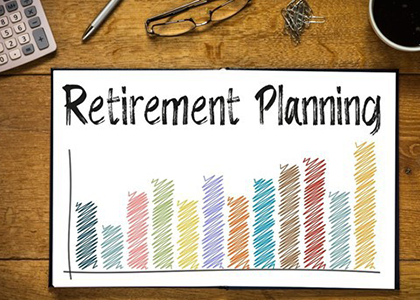Published by Daniel Morrison, Founding Partner and Wealth Advisor
Have you worked at several organizations over the course of your career? You’ve likely opened multiple retirement plans along the way. If so, it might be time to consolidate.
It’s not uncommon for people to have three or more different retirement accounts that they are contributing to. Some of these accounts may even be at the same institution but in different products like a 401(k) and IRA. If you do have multiple accounts, it may make sense for you to consolidate to minimize taxes and maximize your returns. Let’s take a look at how this can work out for you.
Understanding Your Options When Consolidating
Different retirement plans have their own benefits, but also their own sets of rules. It’s important to first get an understanding of the rollover options available to you. You may or may not be able to roll some types of accounts into others; some accounts only allow rollovers once every 12 months; and some only let you roll over after two years.[1]
For instance, if you just started a new job and have multiple 401(k)s with previous employers, you may be able to roll them into your new employer’s plan. If your new employer does not offer retirement plans, you may consider an IRA. However, you might have other options available to you as well. Speaking with a financial advisor can be incredibly helpful as you discover your options and chart a plan of action.
How to Decide if Consolidating Is for You
How do you know if it’s time to consolidate? There are a few things you’ll want to consider before consolidating multiple retirement accounts.
- What kind of benefits and features do your retirement accounts offer?
- Are there similar investment options in all of your accounts?
- What are the fees like on each of your accounts?
- Can you roll over previous plans to a new employer? Or do you need to move to a self-directed retirement account?
You’ll want to consider these questions before you make any moves. At the same time, you don’t necessarily need to consolidate everything into one. You can consider consolidating some of your retirement accounts and keeping others open. What’s best for you will depend on your specific situation and goals for retirement.
Benefits of Consolidating Multiple Retirement Plans
When it comes time for retirement, there are several benefits of consolidating multiple plans into one account.
Here are just a few benefits to consider:
- Reduced investment fees: Fewer retirement accounts can also mean fewer fees. Instead of paying fees for each of your account management services, you only need to pay one—meaning more of your money can grow.
- More opportunities to save: You can’t contribute to an old employer-sponsored 401(k). You need to roll over the account to a new 401(k) or a self-directed account so you can continue contributing to that retirement fund.
- Reduced administrative work for you: Fewer accounts mean simpler management. You don’t need to worry about managing investments and documentation across different platforms. For example, instead of three different monthly statements, you just have one. You can see all your investments in one location for simpler planning.
- Simpler portfolio rebalancing: When it comes time to rebalance your portfolio, having all your accounts consolidated makes it easier to calculate your asset allocations.
- Easier calculations and withdrawals of required minimum distributions: If you have multiple 401(k)s at retirement, you need to take required minimum distributions (RMDs) from each of those accounts.[2] When juggling multiple accounts, you risk missing a required minimum distribution, for which the IRS can make you pay a penalty. Having a single account makes RMDs much easier.
Lastly, one of the biggest benefits of consolidation is saving time. Time is one of your most valuable assets. Having one consolidated account means you’ll spend less time managing all your accounts and free up more time and energy for doing what you love.
Consolidating Helps You Maximize Returns
Consolidating can mean greater returns and less headache in the future, but it can be challenging to navigate the process. If you have multiple retirement plans, we’d love to talk about how we can help you maximize your returns during a free consultation. Contact our office today by calling 410-821-6724 or emailing [email protected] or schedule an appointment at https://www.jacobwilliam.com/insights/#contact.
About Dan
Daniel Morrison is a Founding Partner and Wealth Advisor of Jacob William Advisory, a wealth management firm whose sole mission is to service their clients’ needs beyond their expectations. Dan Morrison has 27 years of industry experience, and for the past decade, he has been committed to building Jacob William Advisory into one of the foremost wealth advisory firms. Dan graduated from Towson University with a bachelor’s degree of finance in economics and obtained his master’s degree in finance from the University of Baltimore. He is a CERTIFIED FINANCIAL PLANNER™ professional and holds the designations of Chartered Financial Consultant® (ChFC), Chartered Life Underwriter (CLU), and Chartered Advisor for Senior Living (CASL). He and his wife Beth reside outside of Baltimore, Maryland, and have three wonderful children. Dan is involved in his church and he enjoys spending time with his family, playing golf, and sailing. A good book is also never far from his reach. Learn more about Dan by connecting with him on LinkedIn.
[1] https://www.irs.gov/pub/irs-tege/rollover_chart.pdf
[2] https://www.irs.gov/retirement-plans/retirement-plans-faqs-regarding-required-minimum-distributions


